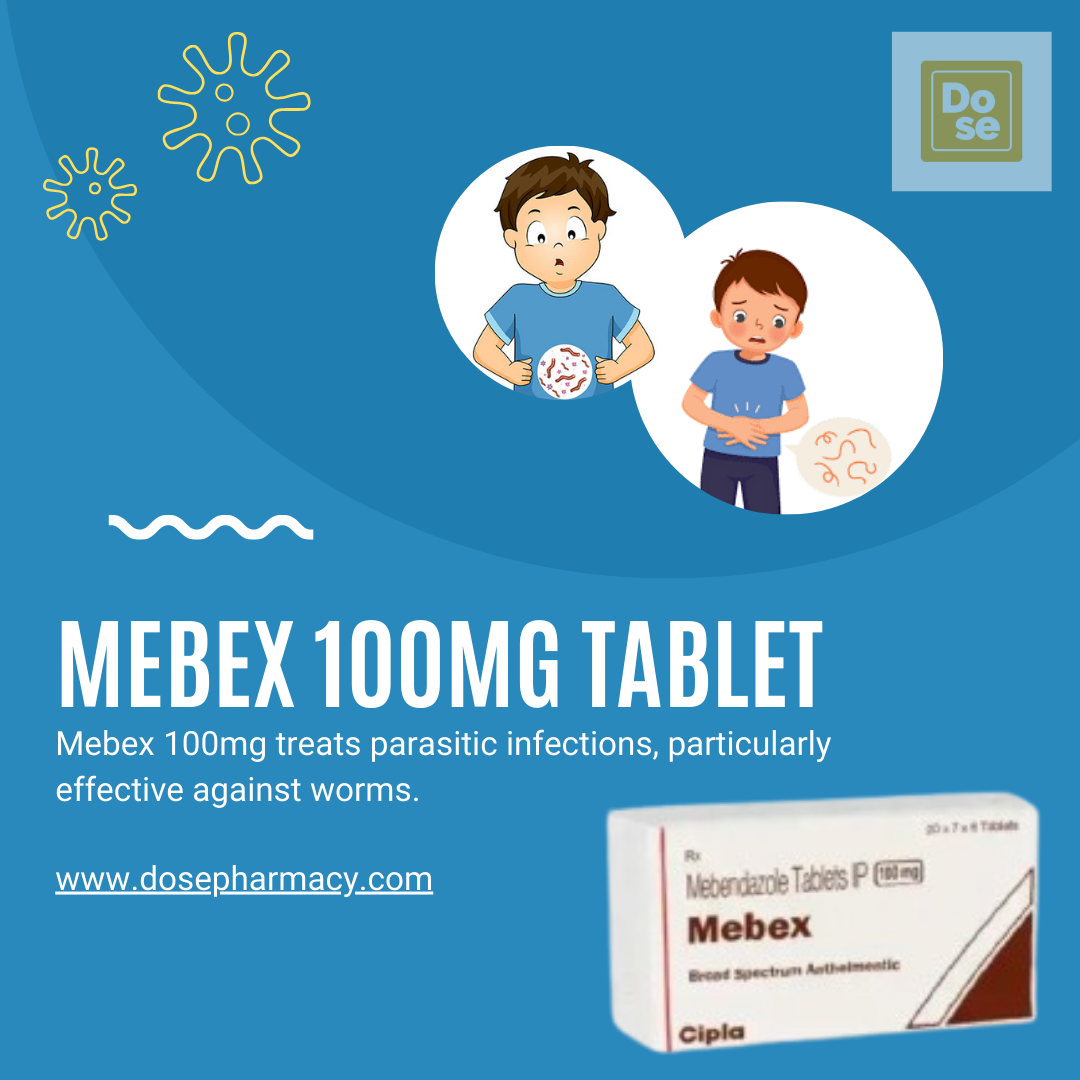Intestinal worm infections, also known as helminth infections, are a common health issue affecting millions worldwide, particularly in areas with poor sanitation or limited access to healthcare. These parasites can cause a range of symptoms, from mild digestive discomfort to severe malnutrition and organ damage if left untreated. Fortunately, Mebendazole over the counter has proven to be a trusted and effective medication in combating these infections.
In this article, we’ll explore what Mebendazole is, how it works, what types of worms it treats, its dosage, safety profile, and how it plays a key role in public health deworming programs.
What Is Mebendazole?
Mebendazole is an anthelmintic (anti-parasitic) medication used to treat a variety of intestinal worm infections. It was developed in the 1970s and has been listed on the World Health Organization’s List of Essential Medicines due to its effectiveness and safety profile.
It is commonly sold under brand names like Vermox, Ovex, and Antiox. Mebendazole is available in both prescription and over-the-counter forms, depending on the country and formulation.
How Does Mebendazole Work?
Mebendazole works by inhibiting the worms’ ability to absorb glucose, an essential nutrient for their survival. Without glucose, the worms lose their energy stores and eventually die. The dead worms are then expelled naturally through the digestive system.
Importantly, mebendazole works locally in the intestine and is only minimally absorbed into the bloodstream, which contributes to its low risk of systemic side effects.
Which Worms Does Mebendazole Treat?
Mebendazole is effective against a broad spectrum of intestinal parasites, including:
- Pinworms (Enterobius vermicularis) – Very common in children.
- Roundworms (Ascaris lumbricoides) – One of the most widespread human infections globally.
- Hookworms (Ancylostoma duodenale and Necator americanus) – Can cause anemia and fatigue.
- Whipworms (Trichuris trichiura) – May lead to diarrhea and malnutrition.
- Threadworms – Occasionally treated, depending on the type and region.
Its broad activity makes Mebendazole ideal for mass deworming programs and general parasite control.
Dosage and Administration
For Pinworms:
- Adults and children over 2 years: A single 100 mg tablet.
- A repeat dose may be needed after 2 weeks to prevent reinfection.
For Other Worm Infections:
- 100 mg twice daily for 3 days is typical for roundworms, hookworms, and whipworms.
- Follow-up testing may be needed to ensure the infection has cleared.
Note: Mebendazole should be taken with or without food and does not usually require special preparation (e.g., fasting or laxatives). However, always follow a healthcare provider’s instructions.
Who Can Take Mebendazole?
Approved For:
- Adults and children over 2 years old
- Most people with mild to moderate intestinal worm infections
Use With Caution:
- Children under 2: Only if prescribed by a doctor.
- Pregnant women: Avoid in the first trimester unless clearly necessary.
- Breastfeeding women: Generally considered safe but consult a physician.
Side Effects and Safety
Mebendazole is generally well tolerated. Most people experience no side effects. When side effects do occur, they are usually mild and may include:
- Abdominal pain or cramps
- Nausea
- Diarrhea
- Headache
- Dizziness
Serious side effects are rare but can include allergic reactions or liver issues with prolonged use. Always consult a doctor if symptoms worsen or don’t improve.
Drug Interactions
Mebendazole may interact with:
- Cimetidine (used for heartburn): Can increase Mebendazole levels.
- Metronidazole: May increase the risk of rare side effects.
- Carbamazepine or Phenytoin: May decrease Mebendazole’s effectiveness.
Let your healthcare provider know about all medications and supplements you’re taking.
Preventing Re-Infection
Mebendazole treats the infection, but reinfection is common, especially in crowded or unsanitary conditions. To reduce the risk of reinfection:
- Practice good hygiene – wash hands regularly, especially after using the toilet and before eating.
- Trim fingernails to avoid collecting eggs under the nails.
- Clean bedding and clothing frequently, especially during treatment.
- Discourage nail-biting or thumb-sucking in children.
- Treat all family members if one is infected with pinworms, even if they have no symptoms.
Mebendazole in Public Health
Mebendazole plays a crucial role in global deworming initiatives, particularly in low- and middle-income countries where soil-transmitted helminths are endemic. The WHO recommends mass drug administration (MDA) with mebendazole or albendazole to:
- School-aged children
- Preschool children
- Women of reproductive age (in non-pregnant or post-first trimester stages)
These programs have shown major benefits, including:
- Improved nutrition
- Better growth in children
- Enhanced school performance
- Reduced disease transmission
Mebendazole vs Albendazole
Both Mebendazole and Albendazole are broad-spectrum anthelmintics, but they have some differences:
| Feature | Mebendazole | Albendazole |
|---|---|---|
| Absorption | Poor systemic absorption | Better absorption |
| Common Uses | GI worms | GI and systemic worms |
| Pregnancy use | Avoid in 1st trimester | Avoid in 1st trimester |
| Duration of treatment | Short (1–3 days) | May vary (1–28 days) |
Mebendazole is preferred for uncomplicated intestinal infections, while Albendazole is better for systemic or tissue infections like cysticercosis.
Conclusion
Mebex remains a reliable, safe, and affordable treatment for a variety of intestinal worm infections. Whether used for individual treatment or as part of large-scale deworming campaigns, it has helped millions of people worldwide regain their health and well-being.
While the medication itself is effective, hygiene and sanitation remain key to long-term prevention. If you suspect a worm infection or live in a high-risk area, consult a healthcare provider to discuss whether Mebendazole is right for you.
















Leave a Reply